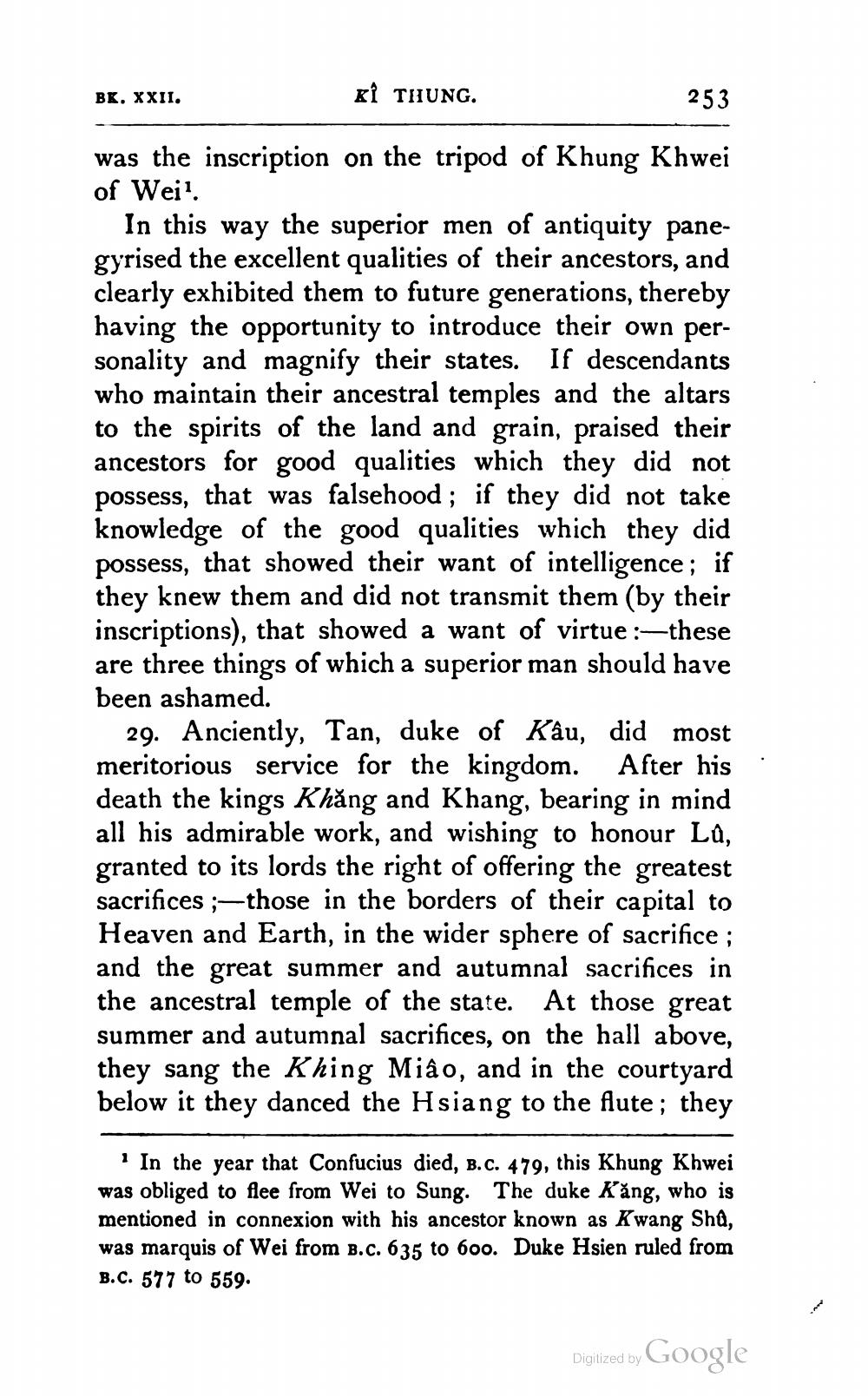________________
BK. XXII.
KĨ THUNG.
253
was the inscription on the tripod of Khung Khwei of Wei?
In this way the superior men of antiquity panegyrised the excellent qualities of their ancestors, and clearly exhibited them to future generations, thereby having the opportunity to introduce their own personality and magnify their states. If descendants who maintain their ancestral temples and the altars to the spirits of the land and grain, praised their ancestors for good qualities which they did not possess, that was falsehood ; if they did not take knowledge of the good qualities which they did possess, that showed their want of intelligence; if they knew them and did not transmit them (by their inscriptions), that showed a want of virtue :these are three things of which a superior man should have been ashamed.
29. Anciently, Tan, duke of Kâu, did most meritorious service for the kingdom. After his death the kings Khăng and Khang, bearing in mind all his admirable work, and wishing to honour La, granted to its lords the right of offering the greatest sacrifices ;—those in the borders of their capital to Heaven and Earth, in the wider sphere of sacrifice ; and the great summer and autumnal sacrifices in the ancestral temple of the state. At those great summer and autumnal sacrifices, on the hall above, they sang the Khing Miâo, and in the courtyard below it they danced the Hsiang to the flute; they
In the year that Confucius died, B.C. 479, this Khung Khwei was obliged to flee from Wei to Sung. The duke K’ăng, who is mentioned in connexion with his ancestor known as Kwang Shồ, was marquis of Wei from B.C. 635 to 600. Duke Hsien ruled from B.C. 577 to 559.
Digitized by Google




